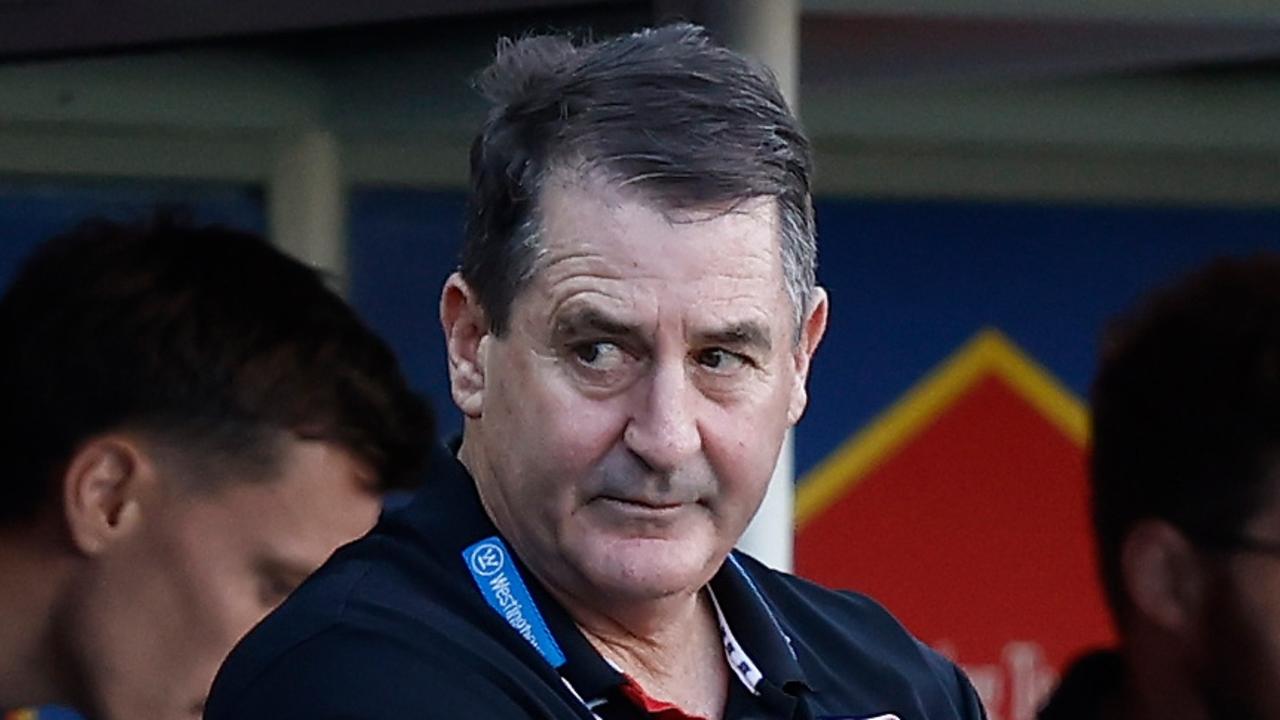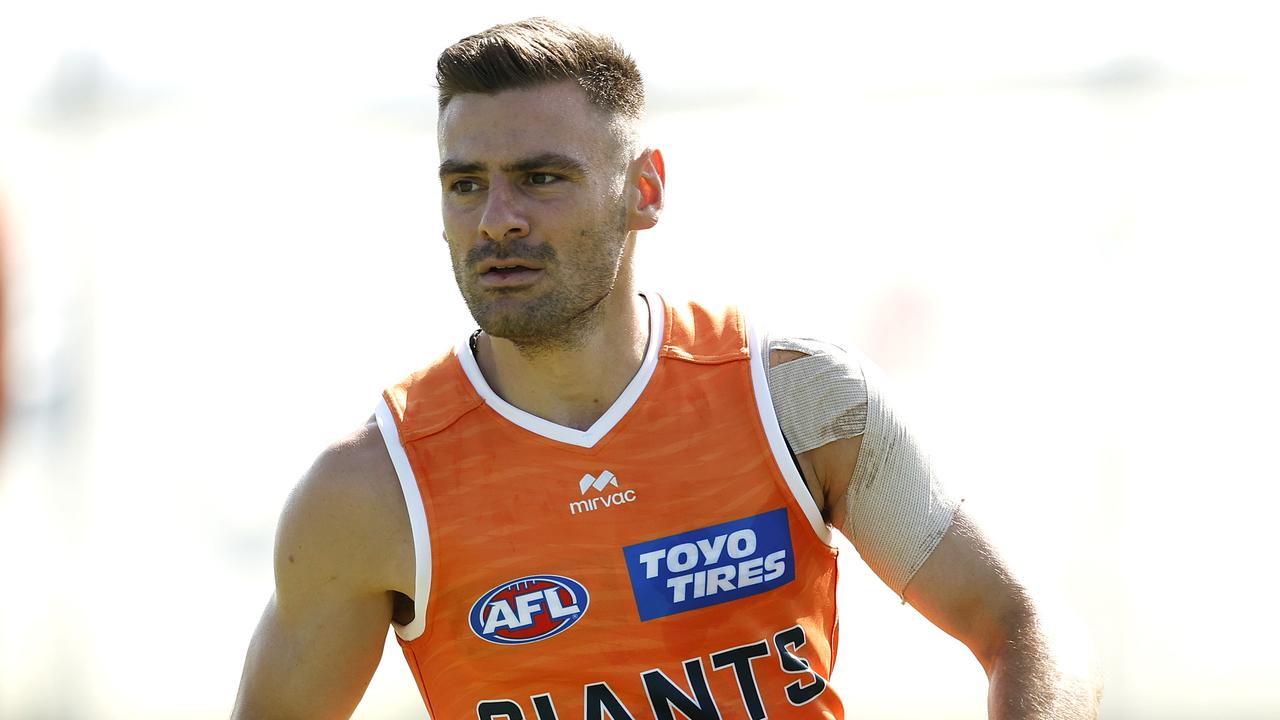Hawthorn racism investigation: The secret reports and what really happened
Exactly one year ago, on May 30, 2023, the AFL’s Hawthorn racism investigation was shut down. Today, MICHAEL WARNER reveals what really happened with Alastair Clarkson, Chris Fagan and Jason Burt.

AFL News
Don't miss out on the headlines from AFL News. Followed categories will be added to My News.
Two secret reports commissioned by the AFL into the Hawthorn racism scandal found “a startling lack of evidence” in the cases alleged against Alastair Clarkson, Chris Fagan and Jason Burt.
The separate reports, authored by a retired Federal Court judge and a top Melbourne law firm, concluded that the gravest allegation – that an Indigenous player and his partner were pressured to terminate a pregnancy – could not be substantiated.
A claim that the Hawks had demanded the separation of another First Nations family for the sake of the player’s career was also considered to be “lacking in evidence”.
The two reports – one by Justice John Middleton and the other by Gordon Legal – found that there was “no basis whatsoever” to support suggestions a subculture of racism had existed at Hawthorn during the club’s golden premiership era of 2008-15 or that the three accused club officials had behaved in anything other than a “caring” way for their players.
The AFL Commission relied upon the reports to terminate the four-person independent investigation panel led by Bernard Quinn KC, which had failed to make any findings eight months after being established following the leaking of the Hawthorn “cultural safety review” in grand final week 2022.
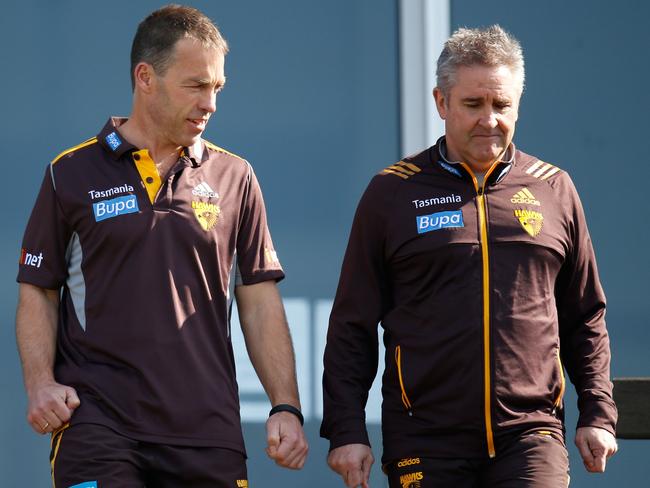
The Hawks remain under pressure to make compensation payments to the First Nations families and the coaches following mediation in the Australian Human Rights Commission.
But the Herald Sun can reveal Justice Middleton and Gordon Legal, led by former Western Bulldogs president Peter Gordon, presented their findings to the AFL last May after being granted access to all of the evidence gathered by the Quinn panel.
The Gordon Legal report called for an immediate end to the AFL probe and asserted that there was “no sufficient evidence” to substantiate the vast majority of the claims made against the former Hawks trio.
Justice Middleton concurred with Gordon Legal’s assessment of the case and reiterated that the league should abandon the panel and had legal grounds to do so.
In the original ABC story that sparked the scandal, a former Hawks player called “Ian” alleged a group of coaches, including Clarkson and Fagan, ushered him into an office where he was urged to have his partner’s pregnancy aborted.
“Clarkson just leaned over me and demanded that I needed to get rid of my unborn child and my partner,” Ian said.
“I was then manipulated and convinced to remove my SIM card from my phone, so there was no further contact between my family and me.
“He told me to kill my unborn kid.”
Clarkson has always vehemently denied the allegations made against him.
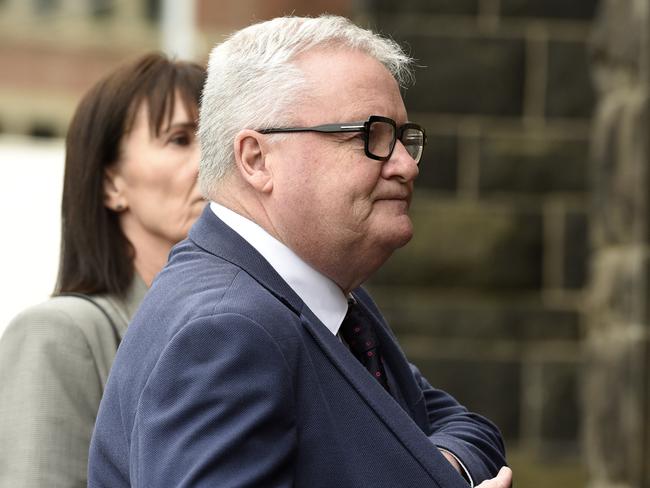
The AFL commissioned the secret reports after the Quinn-led panel had become bogged down in acrimonious legal debate.
It can be revealed the racism investigation turned on its head on the eve of Christmas 2022 when lawyers for the accused parties received detailed statements from the First Nations complainants – the first time the claims could be cross-checked against the contents of the Hawthorn review authored by Indigenous consultant Phil Egan.
Many of the lawyers who received the statements were shocked by the lack of detail and the inconsistencies surrounding the most serious allegations.
“There were major gaps in the material,” one figure said.
When the probe recommenced in January last year, lawyers for Clarkson, Fagan and Burt demanded access to internal Hawthorn records they believed would help clear the trio of wrongdoing, but high-profile lawyer Leon Zwier, who continues to act for four of the Indigenous families, argued that their release would be a breach of his clients’ privacy.
“Zwier seemed to believe he should be the only lawyer who got to see them,” a source close to the saga said.
“Procedural fairness appeared to be a one-way street.”
Threats of legal action mounted against the AFL, which was ultimately responsible for the panel, despite the league’s own frustrations at the slow pace of the investigation process.
Genuine concerns over the decline of Clarkson’s mental health also became a factor.
Among the mountains of material at the centre of the probe was an interview the AFL panel conducted with retired Hawthorn Indigenous great Shaun Burgoyne, which was described as “a powerful endorsement of his old coach and club in the period under question”.
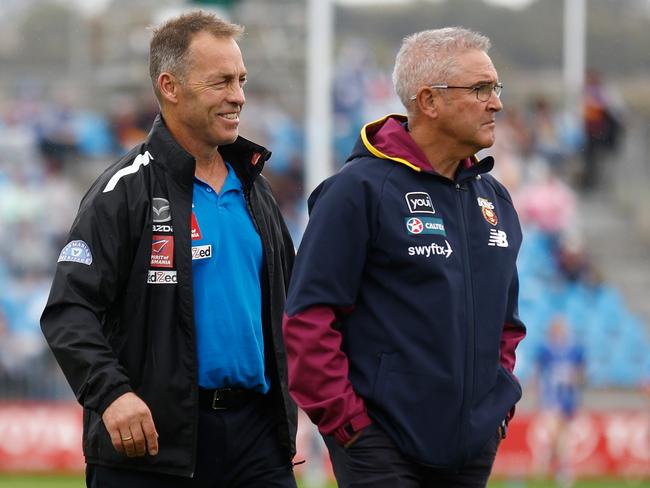
Tensions reached breaking point when Zwier failed to show up at a secret meeting between all parties at Marvel Stadium on May 15 last year – the same week Clarkson took a leave of absence from the game and launched a scathing attack on the investigations process.
Fagan’s lawyers had flown from Brisbane for the Marvel meeting, adding fuel to a raging fire.
“We were told all day he was about to arrive, but we all left after 6pm,” one attendee said.
“It’s hard to believe it wasn’t deliberate. No explanation was ever given.
“The next thing we heard was that Zwier wanted a mediation in Adelaide where he would be the only lawyer present.”
None of the other parties understood why Adelaide had been suggested as a venue for mediation, a city with no connection to any of the affected parties or events, and the proposal was rejected.
The racism crisis came to a head on May 28 last year when major law firm Clayton Utz, representing Fagan, threatened a Supreme Court injunction against the AFL process.
The league remained concerned about “blowback” in shutting down the inquiry, but were advised that the public and the media had shifted and become more sympathetic to the plight of Clarkson and Fagan.
At a snap Tuesday night press conference on May 30, AFL boss Gillon McLachlan announced the panel’s probe had been wound up and that the league had struck a deal with lawyers for the Indigenous players in which “no adverse findings have been made against any of the individuals against whom allegations have been made”.
No mention of the existence of the Middleton or Gordon Legal reports was made by the AFL at the time.
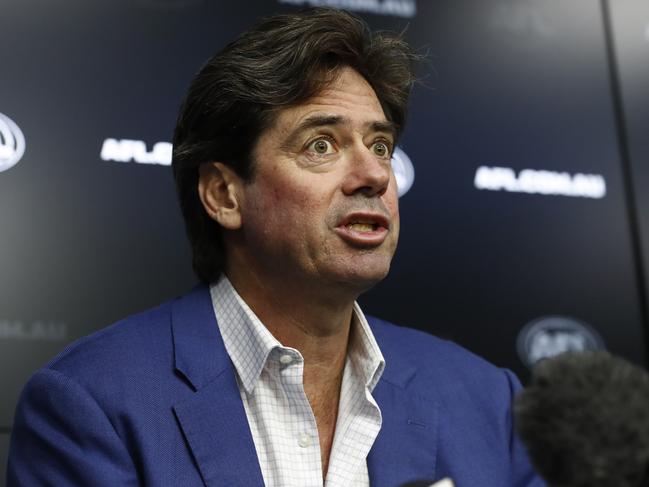
Egan was arrested and charged by financial crime squad detectives after the AFL probe had begun – over claims he fraudulently obtained hundreds of thousands of dollars from the Murray Valley Aboriginal Co-operative – while his past association with one of the four panellists emerged as another point of contention.
Egan is due to face a committal hearing in August.
There were also concerns that members of the AFL panel were seeking to broaden its scope to explore other claims of racism within the game.
Despite conducting eight months of work, the Quinn panel made no findings and failed to produce its own report.
Multiple parties said the establishment of a “diverse, independent panel” to investigate the claims – instead of private arbitration overseen by a retired, eminent judge – was the AFL’s critical error.
“They chose the wrong model,” one legal figure has said. “It was the sliding doors moment – a massive error of judgement that prolonged the misery for all. It became a runaway train.”
Justice Middleton, who presided over the 2014 Essendon-ASADA Federal Court case, is now a senior adviser at the AFL’s law firm DLA Piper.
Gordon Legal was engaged to act as the AFL’s counsel a week after the scandal erupted, helping draft the original terms of reference for the panel’s probe.
More Coverage
Originally published as Hawthorn racism investigation: The secret reports and what really happened




